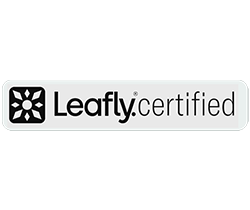
California cannabis testing laws in a nutshell
Senate Bill 643 requires the California Department of Public Health to oversee all manufacturing and testing of medical cannabis. Detailed information regarding California cannabis testing can be found in the Bureau of Marijuana Control’s California Code of Regulations — under Title 16, Division 42, Chapter 5: Testing Laboratories. The plan covers everything from what lab technicians may wear while collecting samples to the acceptable level of pesticides in cannabis. According to the proposal, set to go into effect in 2018, labs are required to test for:
- Analytes
- Cannabinoids
- Filth
- Foreign material
- Heavy metals
- Homogeneity
- Microorganisms
- Moisture content
- Mycotoxins
- Pesticides
- Residual solvents
- Water activity
Reports on THC, THCA, CBD, CBDA, CBG, and CBN must be published in milligrams. Samples receive a “passing” grade if they adhere to the stated levels within 15 percent. Labs must report the presence of acephate, arsenic, butane, mold, and salmonella. They are encouraged, but not required, to test for terpenes.
California cannabis testing regulations for cannabinoids
Testing for cannabinoids ensures that marijuana samples are true to their package labeling and potent enough for sale. At Modern Canna, our Florida laboratory is fully equipped to test for more than 70 different types of cannabinoids.
According to section 5307, laboratories are required to test for the following cannabinoids:
- THC
- THCA
- CBD
- CBDA
- CBG
- CBN
Labs must report the concentration in milligrams per gram in a dry-weight sample of the cannabinoids. Labs shall also calculate the dry-weight and wet-weight percentages of each harvest batch cannabinoid. A certificate of analysis will include the concentration in milligrams per gram for manufactured batches.
Labs may test for additional cannabinoids if requested.
Cannabinoid potency tests are considered “passing” if they are +/- 15 percent of the stated amount.
California marijuana testing regulations for residual solvents and harmful chemicals
California cannabis law will soon put in place very specific regulations that protect the public from harmful adulterants.
According to Section 5310 for Residual Solvents and Processing Chemicals:
- Labs shall analyze samples of manufactured cannabis batches for residual solvents and processing chemicals, but not dried flower, kief, or hashish samples.
- Labs shall analyze the concentration of residual solvents present and cross-reference with the provided table.
- Samples “pass” testing if the concentrations of residual solvents fall at or below certain levels.
According to Section 5313 for Residual Pesticides:
- Labs must test all samples for residual pesticides.
- Medical cannabis is subject to pesticide levels at or below certain levels.
- Labs must report the levels detected in parts per million to three significant figures for the Certificate of Analysis. When a sample “fails” testing, the whole batch may not be released for retail sale.
According to Section 5316 for Microbiological impurities:
- Labs must test all samples for impurities like mycotoxins. A sample “passes” if shiga toxin-producing Escherichia coli is not detected in 1 gram and if Salmonella is not detected in 1 gram.
- Whether or not these microbes are detected must be reported in the Certificate of Analysis. The whole batch fails if samples contain these strains, and may not be sold.
- Lab tests for Aspergillus species A. fumigatus, A. flavus, A. niger, and A. terreus must be conducted for all medical cannabis goods intended for inhalation, including dried flower, kief, hashish, oil, and waxes. If the samples are not detected in 1 gram, they “pass.” If a sample fails, the batch may not be sold.
- Additional microorganisms may be tested if requested.
According to Section 5322 with regard to water activity and moisture content:
- Labs must analyze dried flower harvest batch samples to determine if the water-activity level is at or below 0.65.
- Labs must analyze solid and semi-solid edible cannabis products to determine if the level is at or below 0.85.
- Labs are required to report a sample’s water-activity level to two significant figures for Certificate of Analysis.
- Dried flower harvest batch samples pass for moisture content with a level of 5-13%.
- The moisture content should be listed by percentage to the nearest tenth of one percent on the Certificate.
- Additional information on moisture content and water activity results may be requested.
- Harvest-batch sample fails can be returned to cultivators for further drying and curing prior to re-testing.
According to Section 5325 pertaining to Filth and Foreign Material:
Labs must analyze samples for “filth and foreign material,” such as: hair, insects, feces, manufacturing waste, packaging contaminants, and by-products. The sample “passes” if the concentration of filth and foreign material is at or below:
- Mold or foreign material: average of 5% or more by weight
- Mammalian excreta: average of 1mg or more per pound
The Certificate of Analysis will indicate whether the sample has “passed” or “failed.” If a sample fails, the batch fails and must be destroyed unless remediation is possible.
According to Section 5328 for heavy metals:
Labs must analyze all samples for the following heavy metals:
- Aresenic
- Cadmium
- Lead
- Mercury
Labs are required to report the concentration in micrograms per gram. A sample “passes” heavy metal testing if the concentrations are at or below certain pre-determined levels. Labs may test for additional metals if requested or suspected.
Marijuana testing regulations for terpenes
Increasingly, the best labs are testing for terpenes, though not always required by law. Tests are only required when the cultivator, manufacturer, or distributor’s product labeling says the sample contains certain types of terpenes. In those cases, the terpene concentration must be reported to one-hundredth of a percent and listed in the Certificate of Analysis. These organic chemicals not only give samples a distinctive smell or flavor profile, but they are also believed to contribute to the medicinal qualities, physiological effects, and potency of the cannabis as well.
Other cannabis state testing regulations
California isn’t the only state thinking about how to make cannabis safer and more effective for users. Visit our page on Cannabis State Testing Regulations to learn more. Contact us if you have questions about having cannabis samples tested in one of the country’s most respected labs.


